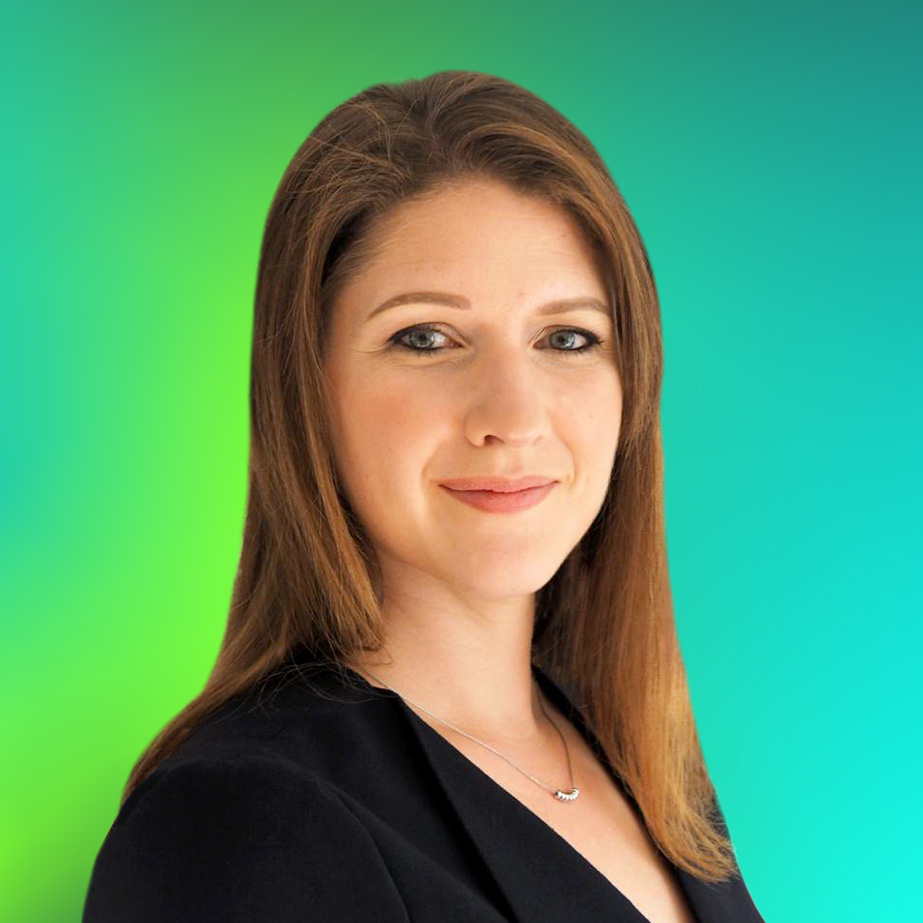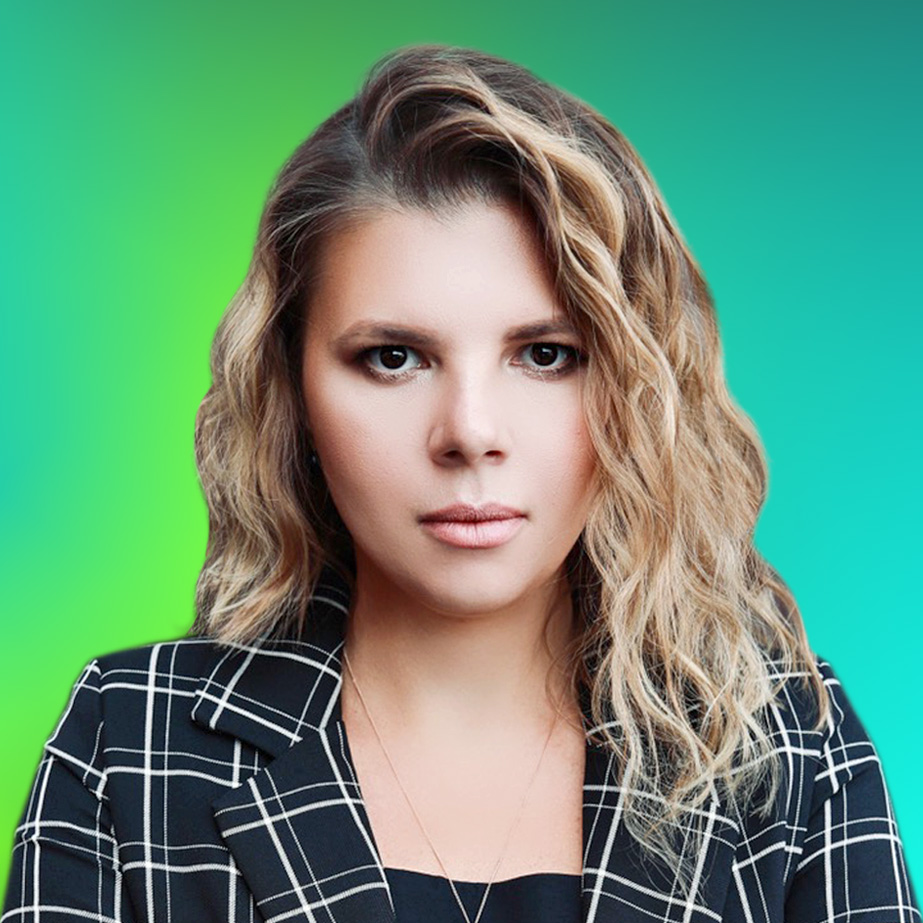- Your network of people is everything. Claire Hatcher, Head of Business Development, Kaspersky Fraud Prevention
- Always have a curious mind. Noushin Shabab, Senior Security Researcher at GReAT
- Open the door to more opportunities. Yana Shevchenko, Senior Product Marketing Manager
Kaspersky is an advocate for gender equality and strongly believes that women should be given every possible chance to work in a profession related to the technologies and services they are passionate about.
We have been proactive in recruiting and promoting female employees, with an equal share of women in managerial and non-managerial roles. In fact, Kaspersky’s male to female employee ratio is similar to other technology companies – with 28% of employees now being women. A fifth of Kaspersky’s Research and Development team is female and one-in-seven women are team leaders.
Following Kaspersky’s new mission to ‘bring on the future’, the company actively encourages women to pursue careers in cybersecurity today so that they can contribute to building a safer world tomorrow (join the Women in CyberSec Facebook group to find out more!). On the eve of the International Women’s Day, we want to share some inspiring stories from our female leaders on how they started their career in cybersecurity – offering some pieces of advice for women who are considering how they can enter this field.
Your network of people is everything
Claire Hatcher, Head of Business Development, Kaspersky Fraud Prevention

As a graduate I had no idea what I wanted to do with my life and certainly no clue about the opportunities that each different industry would open up! I studied languages at university and my main career criteria was to work for a global company, so I hadn’t exactly set my sights on IT. Like most graduates, it was hard to find a job without any experience, so I fell into the IT sector by accepting a job managing companies’ domain name portfolios.
In that role, I began to understand more about how the internet works, whilst also becoming very aware of the threats that businesses face as a result of the interconnected world we live in. From there a colleague introduced me to her work in infosecurity and fraud prevention. I became instantly fascinated with how businesses can protect themselves against cyberthreats. Fifteen years later and I still get excited about trying to identify and mitigate online threats.
At Kaspersky, I lead the business development of Kaspersky Fraud Prevention – a solution for organizations from finance, banking and e-commerce among others, who face risks from fraudulent activity. I have worked with so many great business people during my career – both men and women – so I try and analyze what I like about their approach and adapt those aspects to my own style. For me, being authentic in any approach you take is key, there’s no point trying to emulate someone’s leadership style if that doesn’t fit with your own values. It won’t feel right to either you or your audience.
My team represents true gender equality, and I believe that this equality and diversity of teams in general has huge benefits to every industry. Indeed, there are a number of studies that show how innovation comes from diversity of thinking at the intersection of backgrounds, cultures and disciplines. Just look at Johansson’s book ‘The Medici Effect’ for proof points. Diversity is particularly important in technology and the fight against cybercrime, where we have to change our thought patterns to think like a cybercriminal in order to find potential vulnerabilities.
From my perspective, the world is becoming more enlightened and accepting of a balanced and diverse workforce. However there will always be some bias which won’t disappear. I have faced gender-based challenges during the course of my career and I’ve learnt that it’s important to be mindful that everyone is human and comes with their own biases and expectations based on their own experiences and background. We cannot change other people, but only our reactions and how we choose to respond in any given situation. When dealing with others, try to find some form of common ground to help make a connection. Also, be mindful that gender stereotypes can harm men as well as women, so we need to find ways of being inclusive of everyone.
It’s great that many young girls are embracing STEM subjects which will hopefully lead to more women taking up tech roles. It will take a while before the balance in the industry becomes 50/50, but don’t let that put you off! It’s a great industry to be part of, and technology underpins everything we do now and will do in the future. Find some sponsors (both men and women) who can help guide you through your career.
The value of your network is everything. People shy away from the word networking, but it’s simply a term for what we all do naturally when we meet new people and connect with them in some way. All of my favourite job roles have come about as a result of those networks and most of them completely unexpectedly. Sometimes I’ve been asked to take on a role completely outside of the one I was doing, and I’ve thought, “really, why me? I have no experience in that area”, but often others see things in you that you don’t see yourself.
Always have a curious mind
Noushin Shabab, Senior Security Researcher at GReAT
The IT security industry is so broad and there are so many different roles, which is why I believe any young woman with an interest in computing can find her ideal career in the sector. To be successful in the industry, you need to add passion and persistence to your skill set — not every day will be easy, but the results will be worth your persistence and the challenges you may face.
My interest in computer science started while I was still in school. Being a big fan of puzzles and mathematical challenges, I grew up with a love explore and learn about new technologies. Learning computer programming during middle school nurtured my interest in wider programming skills. Then in high school, I frequently competed in a number of national programming contests and managed to finish amongst the top three contestants in a few of them. It was around this time that I realized I wanted to pursue a career in computing and did a degree in programming and computing at university.
I was looking for a job in cybersecurity, hoping to specialize in my reverse engineering. After some working experience in my home country, Iran, I took the decision to reside in Australia as it is a multicultural country and it is very important in our industry (as well as any other industry) to have this diversity. There was a small amount of available jobs in that field, but unlike the other interviews I attended, Kaspersky was the only company to examine my technical skills – especially with my niche in reverse engineering. It was not easy to pass a test, but I did it, and landed my dream job with a positive review from my future manager.
Cybersecurity research is very challenging compared to general work. You do not know what to expect and what you are going to find the next day. And I this is something I really like about my role. Being a threat hunter, I want to help people understand the risks as the world becomes digital, with connected devices and people are not fully aware of how to stay protected, along with the potential risks and dangers. What makes the GReAT team at Kaspersky, which I am part of, even more special is its diversity. It has more than 40 experts representing multiple countries, and the culture in the business makes everyone feel included.
One of my biggest inspirations is my sister Negar. We are twins and stood shoulder to shoulder for nearly our entire lives – by studying together at university, starting careers as malware analysts, and now providing workshops and mentoring for young girls in Australia. We’ve been supporting each other over the years, but also inspiring and encouraging each other’s achievements, as well as teaching what one of us may know better than the other.
I’m lucky to have my sister alongside me, and this has given me an understanding of how important what you have around you can be. That’s why my advice to those who have just started their career in tech would be to never stop asking questions about your surroundings in this line of work. Always look at your circles of colleagues, friends, peers, mentors and role models. Don’t be afraid of asking silly questions and speaking your mind. This is because all these aspects build the confidence and knowledge for you to grow your skills and potential capabilities in your cybersecurity journey.
Open the door to more opportunities
Yana Shevchenko, Senior Product Marketing Manager
Today, gender bias is present in every aspect of our lives and comes in many forms, but mostly we meet it in the workplace. Statistic shows while both genders can browse jobs similarly, they apply to them differently. In particular, men will apply for a job if they meet only 60% of the required qualifications, while women will apply only if they feel they meet 100%. To me, this suggests that women still don’t feel confident enough when they are up against men, in the running for a good job or looking for career advancement. This is something it’s up to us (women) to try to change.
When it comes to my own story, I started my career path in a male-dominated environment at university. My first course at the Moscow Technical University of Communication and Informatics, as an undergraduate engineer in radio communication and television broadcasting, I was one of only four girls in a group of 30 students. Moving on to further higher education in management in the oil and gas industry at the famous Gubkin Russian State University of Oil and Gas, I was one of two girls in a group of 20. During this time however, I didn’t feel any gender bias. If you performed well in class, who you were and your gender was not important.
Outside of university and applying for my first job (with a huge telecoms vendor) was a very enlightening experience. 10 strong students, including two girls, were taken from leading IT and telecoms universities, and given a competitive three month trial period, after which just two of us were offered jobs in the technical pre-sales department: me and one boy. Again, this showed me that you could prove yourself as one of the very best, even when you are up against so many men. From here, I continued to move forward.
Prior to joining Kaspersky, I worked at a global level in pre-sales, sales and business development within IT, IT security and telecoms. Latterly I was with Russia’s leading IT security systems integrator where, in the technical department, I was responsible for promoting identity management and data access governance solutions.
Having joined Kaspersky in 2017, I’m now a senior product marketing manager, responsible for enterprise-level solutions addressing advanced threats and targeted attacks, working with industry analysts and business partners worldwide. I am the author of a number of reviews and articles on IT security and an active participant in industry exhibitions and conferences as a speaker. I’m still working as the only female in my department with responsibility for a Kaspersky enterprise security product. To add to this, my products – Kaspersky Anti Targeted Attack Platform and Kaspersky EDR – are the most technically complicated in my department but also the most interesting, and I continue to promote them with great pride.
On the journey to where I am now, I have seen that managers still entrust important tasks, which could be undertaken equally well by either gender, more to men. Women are too often simply not allowed to show their professional capabilities, and this is the area where I most frequently encounter gender bias in our modern world.
This is also what I would like to change – just give women more opportunities to express ourselves, give us important assignments to run, let us engage in important tasks. Be prepared to upgrade us in posts, and you will find we deliver much higher returns than men. I can be bold and say that because, for women, opportunities like this mean a lot, whereas for men they can feel entitled to them.
For this reason, I would like to say a huge thanks to those who did give me these chances – who helped and guided me, and shared pride in my successes. They have made all the difference to my life. My advice to girls in technical professions is to not be afraid to go forward, to keep learning and to believe in yourselves and, of course most of all, to recognize that we are equal and on a par with men when it comes to our abilities and capabilities.

